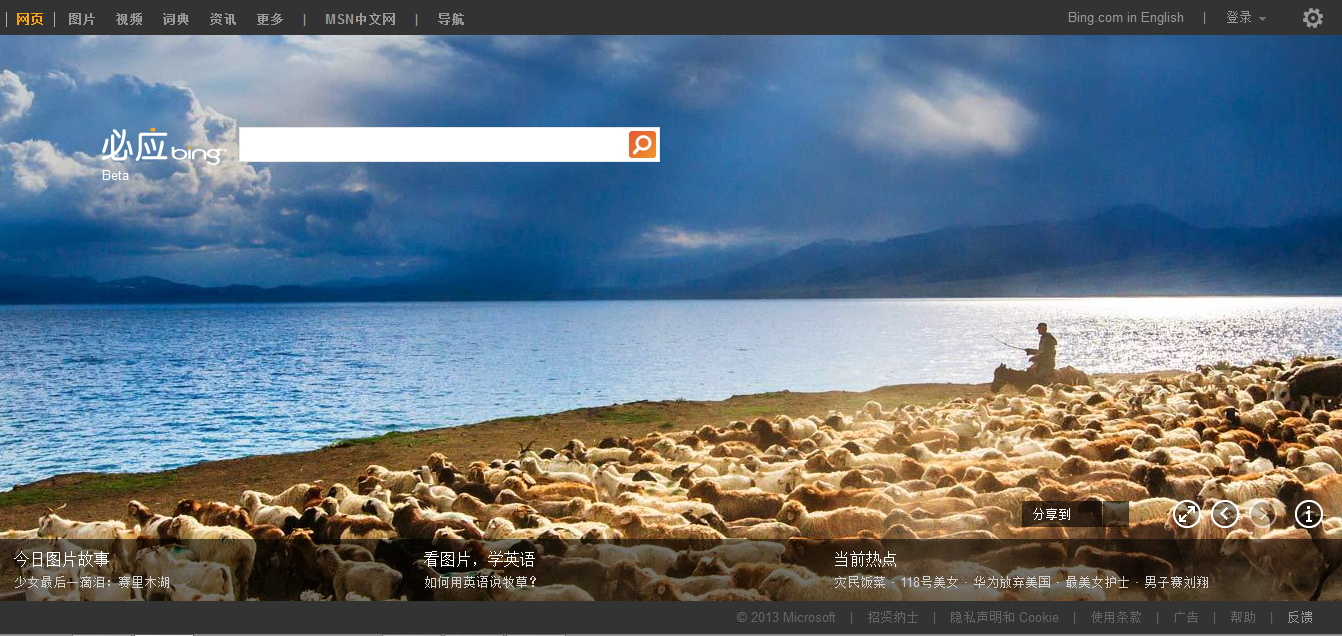
Facebook should be applauded for not blocking violent videos
There's a lot of crazy content out there. Social networks fill up with funny footage, music videos, informative clips, and the downright stupid. As with movies, there's also a good deal of graphic content out there too, and some of it finds its way onto Facebook.
In fact, this is one of the complaints that Facebook constantly has to deal with. When people aren’t taking issue with the social network's privacy policy (and trying to make their own amendments to it) there are frequent objections to violent, gory or otherwise offensive videos. Rather than issuing an outright ban and censoring such content, Facebook has adopted a far more sensible, measured approach.

Apple, Google and Facebook lend support and money to Je Suis Charlie campaign
12 people died in an attack on satirical French magazine, Charlie Hebdo on Wednesday. At time of writing, the situation in France is still unfolding, and technology companies have been quick to show their sympathy for the victims whilst voicing support for freedom of speech.
Google has donated €250,000 (around $300,000) to the targeted Charlie Hebdo title, which is expected to increase its print run more than tenfold for the next issue. The #JeSuisCharlie hashtag has spread across the internet like wildfire as people around the world offer support on Twitter, Facebook and other websites.

Access to Gmail is blocked in China
China is one of the more 'interesting' counties when it comes to its attitude to allowing unfettered access to the internet. The Great Firewall of China is famed for the restrictions it places on the online activities of Chinese citizens. New data seems to suggest that Google's Gmail is currently blocked in the country.
Dyn Research, a web traffic research company, reports that Gmail traffic is being blocked at the IP level rendering Google's email service inaccessible within most of China. The disruption appears to have started late on Christmas day and is still on-going.

GreatFire.org and BBC punch uncensored news through the Great Firewall of China
The Great Firewall of China is renowned for the restrictions it places on what Chinese citizens can access online. Free speech advocates have long called for the Chinese government to allow access to the wider web, so people in China can get a better idea of what is going on elsewhere in the world. Now GreatFire.org, working with the BBC, has found a way to deliver uncensored Chinese language news to those on the wrong side of the firewall.
GreatFire.org is an anti-censorship group that monitors web blocking in China and campaigns against censorship. Various techniques for getting around the Great Firewall of China have been publicized in the past, but they have relied on VPNs and other tools that can be complicated to set up. The latest method requires no special tools.

Google's removal of homophobic 'gay hunting' game was far, far too slow
This morning there was flurry of activity on Twitter as people became aware of the existence of a game called Ass Hunter on Google Play (link included for the sake of completion, although it's no longer active). There were snorts of indignation, incredulous shakes of virtual heads, and numerous cries for Google to pull the app without delay.
This has now been done. The game, which described itself as a "popular game on hunting gays", encouraged people to "play and do not be gay" is not new. The Android game is (or was) a port of a title that dates back almost a decade, and its appearance in the Play store highlights an important difference between Google's and Apple's app stores -- the vetting processes involved.

Facebook is taking over from Google as gatekeeper of the internet
Google is widely regarded as being one of the controllers of the internet. It is by far the most popular search engine and if a site does not appear in the first few pages of results, it may as well not exist. But Google is far from being the only gatekeeper to the internet; Facebook is increasingly vying for that crown, whilst making efforts to make access more secure through Tor. But what does this mean?
Facebook accounts for a terrifying percentage of web traffic -- it is the second most visited website in the world according to Alexa. This means that it has a huge influence online, giving the social network the opportunity to shape the web and holds great sway in determining which sites, services, and stories rise to popularity. To many people, this influence is all but invisible, and this is perhaps the most concerning part of the story. So how does Facebook's influence present itself?

BBC to fight censorship with a 'right to be remembered' list of articles removed from Google
The BBC will publish a list of all its articles that are removed from Google under the "right to be forgotten" law that was controversially implemented earlier on this year.
Editorial policy head David Jordan told a Google-hosted public forum that the BBC thinks a number of its articles have been erroneously taken down and that in the "next few weeks" it will publish a list of the URLs that have been removed from Google.

I'm anti-censorship! I won't try to silence those who criticize me
A week ago I wrote about my feelings of ennui towards the iPhone 6, asserting that there was just nothing to get excited about. Some people agreed, but many didn't -- it was to be expected really. What was particularly interesting was not just the discussion that started here in the comments on BetaNews but also that the article spread further afield. It was picked up by Macworld whose resident columnist The Macalope, er, disagreed with what I had to say. You'll notice that I've provided a link to the Macworld article which, despite quoting 46 percent of my post, The Macalope failed to do initially.
If you take the time to read the Macworld article you'd be forgiven for thinking that I was hurt at having my work pulled apart. Not a bit of it. No, I'm not concerned about being criticized. I've been writing for approaching 15 years now, and I know I'm going to piss people off from time to time. That's not to say that this is necessarily my intention -- in addition to news, I like to share my opinion and there will, of course, be some collateral damage that follows. Despite The Macalope's suggestions to the contrary, this was not designed to be a "link-baity" piece. Like Joe Wilcox, I've written about the importance of writing for the reader rather than writing for Google, and this is an ideology I firmly subscribe to.

Facebook could make explicit content more difficult to view
Facebook's own safety advisers are calling for new controls to be put in place that prevent gruesome images appearing on the social network after harrowing images appeared on one page in particular.
The new move is being proposed by Stephen Balkam, chief executive of the US Family Online Institute (Fosi), at the next meeting of Facebook's Safety Advisory Board after images of severed heads appeared on the social network courtesy of the Islamic State (IS).

Hidden From Google shows the 'right to be forgotten' is pointless
It's a little while since a European Court of Justice ruling forced Google to start removing search links to certain articles. Dubbed the "right to be forgotten", the ruling led Google to create an online form making it easier for people to get in touch about search results relating to them thought to be "inadequate, irrelevant or no longer relevant". But just like those requests from celebrities to stop publishing compromising images online, it seems like asking for search links to be censored serves only to highlight the existence of the web pages they correspond to.
The court's decision that people should be able to request that information about them be removed from Google searches came after Spaniard Mr Costeja González took exception to links to stories about a series of old debts he had. There are now few people who follow news about Google who are not aware that Mr González has a less than perfect credit history. It's not clear whether he regards the ruling as a personal victory, but the appearance of Hidden From Google is sure to ruffle the feathers of many who have submitted similar removal requests to the search giant.

Almost 1 in 5 websites now blocked by censorship filters in the UK
Browse the web in the UK, and sooner or later there’s a good chance you’ll stumble across a website that’s been blocked. Sites like The Pirate Bay, Fenopy and H33t are no longer viewable due to court orders preventing access, and other sites -- many perfectly legitimate -- are being blocked by censorship filters.
It’s not exactly like living in China, but according to a new project by the Open Rights Group, ISPs are currently blocking 19 percent of tested websites.

German gamers get Nazi-free version of Wolfenstein: The New Order
Germany and Nazism have history; one doesn’t have to be much of a history buff to know that. But the aftershocks of Hitler's Germany are still being felt; the country is still rather sensitive, shall we say, about the whole idea of the Nazis. So touchy, in fact, that as part of post-World War Two denazification the display of Nazi symbols (or "use of symbols of unconstitutional organizations") is illegal. This presents an issue for the game Wolfenstein which concerns itself largely with escaping from Nazis, killing Nazis, tracking down Nazis... there are lots of Nazis involved. Ultimately this meant that the popular game series was banned from Germany since it was first conceived back in the early 80s.
The latest installment in the series, Wolfenstein: The New Order, is set in the 1960s after a Second World War won by the Nazis. But this time around the game got a German release -- yesterday in fact. Bethesda's Pete Hines said last month that Germany has "a thing about Nazis", describing the country as "a little touchy" about the subject. So how was the release possible? This is not because the country has relaxed its laws -- the display of Nazi-related material can still result in a three year jail term -- but because the game has been censored.

Stop watching us! Mozilla takes on the NSA
The repercussions of last week's PRISM story continue to ricochet around the web. The latest domino to fall is that belonging to Mozilla, maker of the popular Firefox browser and Thunderbird email client. The organization announces sweeping actions against this news with a campaign designed to raise awareness on perceived privacy intrusions.
Mozilla's Alex Fowler, leader of privacy and public policy, announces "last week, media reports emerged that the US government is requiring vast amounts of data from Internet and phone companies via top secret surveillance programs. The revelations, which confirm many of our worst fears, raise serious questions about individual privacy protections, checks on government power and court orders impacting some of the most popular Web services".

Government demands to remove content reaches new highs, Google claims
For the past three years Google has released transparency reports, which loosely translate to tattling on the government and other entities that attempt to extract information from the search giant. None are likely happy with this reporting, but it is all public record and fair game.
"Today, for the seventh time, we’re releasing new numbers showing requests from governments to remove content from our services", states Google's legal director Susan Infantino.

What is Bing's China problem?
A few weeks ago, while doing a bit of research for a story, I had occasion to visit the Bing search page. More importantly to this article, it was the Chinese version of Bing. Over the following days I forgot about this brief foray into Asia, but my web browser remembered.
When I return to Bing several days later I am defaulted to the China site -- it still says I am on www.bing.com, but all information is displayed in Chinese characters, which Chrome helpfully translates on the fly. I close the tab, re-open and try again with the same results. I close Chrome and try again -- still nothing.
